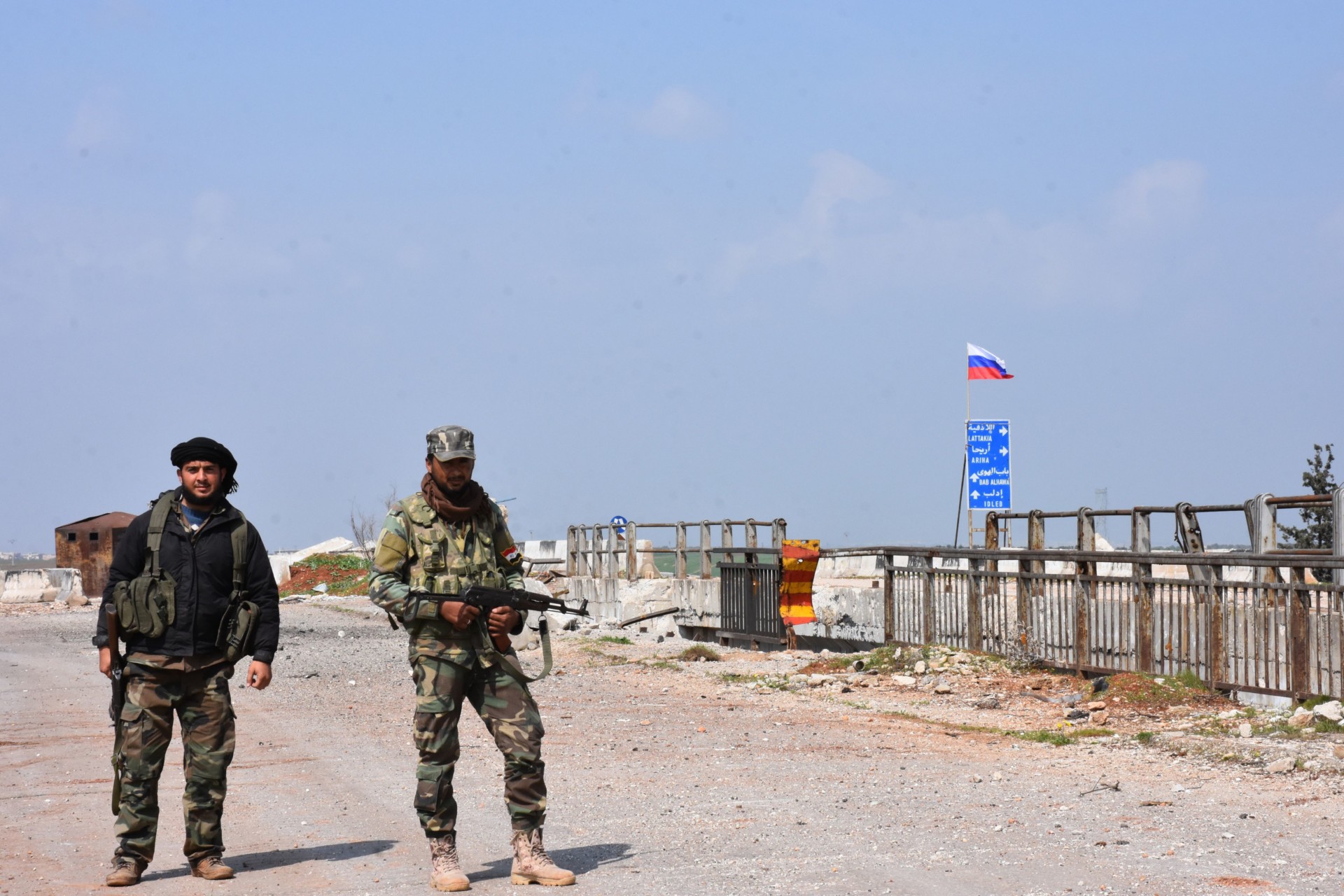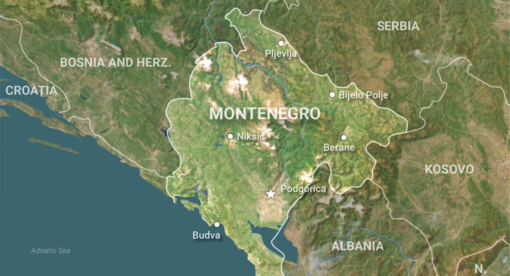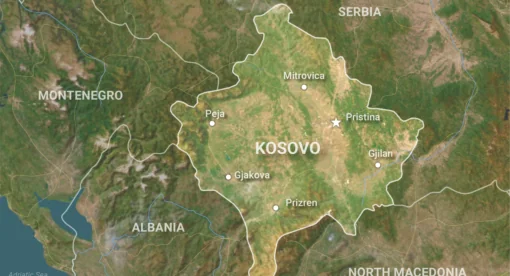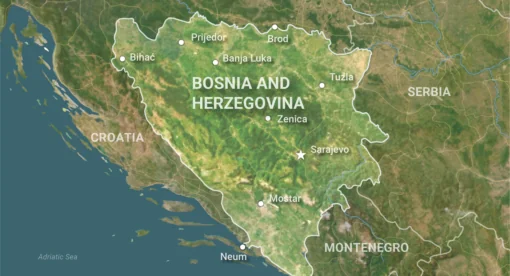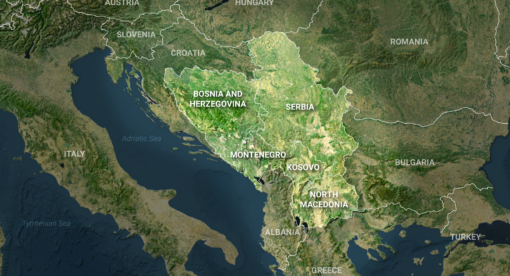Despite a truce, Russia and Turkey will remain at odds in Syria as each country pursues its own interests.
The Russo-Turkish agreements of March 5 set up joint patrols in northeastern Syria, a territory contested by the Syrian government, Russian forces supporting that government, Syrian rebels, and Turkish forces. As has been the case with previous such tactical truces, this agreement will merely put a temporary bandage over a gaping wound whose sources of infection have not been addressed. We should expect renewed fighting among these forces in the not-too-distant future.
Incompatible Goals
Russian and Turkish aims are incompatible. Turkey wants to carve out a large buffer zone under its auspices that would allow refugees to return to Syria and would prevent Syria’s Kurds from linking with Turkey’s Kurds. Ankara regards the People’s Protection Units, a Syrian Kurdish military group active in northern Syria, as nothing more than terrorists and an adjunct of the Turkish opposition group the Kurdistan Workers’ Party that has been determined to use force to advance its interests.
Turkey’s desire to set up a buffer in northern Syria is further strengthened by the ongoing fighting in other parts of the country despite Russian, Syrian, and Iranian victories over the rebels. Proxy forces built up by Iran, Russia, and Turkey continue to clash, with a rivalry between Russian and Iranian proxies in the south fueling violence as each strives for control over territory, rackets, and markets. Syria cannot stop this violence, and the rival proxy forces will not stop it. No matter its goals, however, Turkey is unwilling to clash directly with Russia given Moscow’s close ties with Syrian Kurds and its own dependency on Russian energy imports.
Running counter to Turkey’s desire for a buffer zone is Russia’s aim is for Syrian President Bashar al-Assad to re-establish his writ as far as possible throughout Syria, though the regime currently faces several obstacles. Russia is unwilling to fight with Turkey directly because that could bring NATO into the fray. This almost happened in March after Turkish President Recep Tayyip Erdogan called for a NATO meeting to ask for its support against Russian moves in Syria that were threatening to significantly add to the refugee crisis that Ankara has been dealing with for nearly a decade.
Moscow also is becoming increasingly unhappy over al-Assad’s inflexible policies. Al-Assad insists on recovering his authority over all of Syria without any political reconciliation with any faction, an inflexibility that has finally led Russia to criticize him openly, albeit through Russian media and not official channels.
Russia also may be seeing divisions among its own policymakers. Allegedly, the Ministry of Defense and military-intelligence apparatus are in disagreement with the Ministry of Foreign Affairs and its research centers over how to continue dealing with the conflict in Syria. The public critique of al-Assad shows that the elements of the Russian government who are disenchanted with him have obtained political cover for expressing their views about his inflexibility and corruption in public to warn him that his support in Moscow may not be immutable. Moscow’s difficulties also come from Iran, which has communicated its unhappiness with being excluded from the March 5 agreements with Turkey and has long been unhappy that Moscow will not shield it from Israeli raids on its positions in Syria.
Russia’s aim continues to be to limit Turkish operations in northern Syria. Moscow is even establishing a new helicopter airbase there in Raqqah province, a veiled warning that Russia will not simply allow Turkey to expand its military intervention in the region. While there have been at least seven of the newly established Russo-Turkish patrols in Syria, the March 5 agreement failed to obtain a legal basis as the U.S. vetoed the agreement when it came before the U.N. Security Council. Therefore, this remains merely a bilateral agreement. And there are numerous signs of domestic and rebel opposition to the patrols that will likely increase and interfere with their missions in the future.
Turkey’s Advantages in Syria
Neither Russia nor Turkey can afford to clash directly with each other. Turkey historically has been outmatched by Russia’s military superiority, but the clashes in February and March showed that Turkish forces still can damage Russian assets via drone strikes, despite Turkey’s losing 10 drones over three days during the fighting. Indeed, in the Syrian context, at least some observers believe that Russia’s overall military superiority to Turkey “doesn’t translate into superior strength on the ground in northwestern Syria.” Or as the prominent American analyst Michael Kofman observes, “The correlation of forces is decidedly against Russia in Syria.”
Part of Turkey’s advantage in Syria comes from its ability to threaten to close down the Turkish Straits, claiming that this is a time of war as defined by the Montreux Treaty of 1936, Turkey’s “bible” on the Black Sea. Closing the Straits to Russian commercial and/or military ships not only threatens Russian exports through the Black Sea but also exposes the logistical Achilles’ heel of all of Moscow’s power projection capabilities throughout the Mediterranean. The forces in Syria would have to depend on Iraq or Iran giving them overflight rights, for Turkey certainly would not do so, and any maritime shipping would then have to go from the Baltic. In other words, closing the Straits would isolate Russia’s Mediterranean Eskadra and its forces in Syria.
If Russia were to try to force the issue, it would clearly generate another Turkish request for NATO’s support. Neither Turkey nor NATO could accept a breach of the Washington Treaty, and thus any serious attempt to counter Turkey’s military moves in Syria would undermine Russian President Vladimir Putin’s longtime efforts to upend Turkey’s bonds with NATO. Erdogan used this tactic during the recent crisis, threatening to close the Straits to Russian ships in an attempt to force Moscow to decide to negotiate, with Moscow responding by sending five frigates and an amphibious landing ship to the eastern Mediterranean. The threat signaled Turkey’s seriousness of intent and obliged Russia to negotiate.
A direct Russo-Turkish clash in Syria does not have a guaranteed outcome from either Moscow or Ankara’s standpoint. The fact that Turkey thinks it can rely on NATO has emboldened Erdogan to take a high hand even if he ends up, as in this case, having to accept Russia and its Syrian allies keeping most of their previous gains. Turkey also was obliged to accept joint patrols of the key M4 highway, thereby giving Russia and al-Assad’s forces a further penetration north into Idlib in Northwestern Syria, a region that had been earmarked in previous agreements as a refuge for rebels and opponents of al-Assad.
Tallying all these factors, plus the presence of U.S. forces in northwestern Syria and Israel’s forceful determination to prevent any Iranian buildup in Syria, it becomes clear that the war’s end is nowhere in sight. The conflict is more than just a civil war; it also is a proxy war for major global and regional powers and will probably long remain so, with a decisive victory by any one side impossible, especially if al-Assad cannot be induced to renounce his eternal objective of ruling over a reconstituted Syrian state all by himself with no concessions to anyone. James Joyce once observed that history was a nightmare from which he was trying to wake up. Syria epitomizes that kind of nightmare and history, but nobody should be fooled into thinking that the players there will awaken any time soon.
Dr. Stephen Blank is an independent consultant and former professor at the U.S. Army War College. He is the author of numerous foreign policy-related articles, white papers, and monographs – specifically focused on the geopolitics and geostrategy of the former Soviet Union, Russia, and Eurasia. He is a former MacArthur Fellow at the U.S. Army War College.
The views expressed in this article are those of the author and not an official policy or position of the Newlines Institute.

